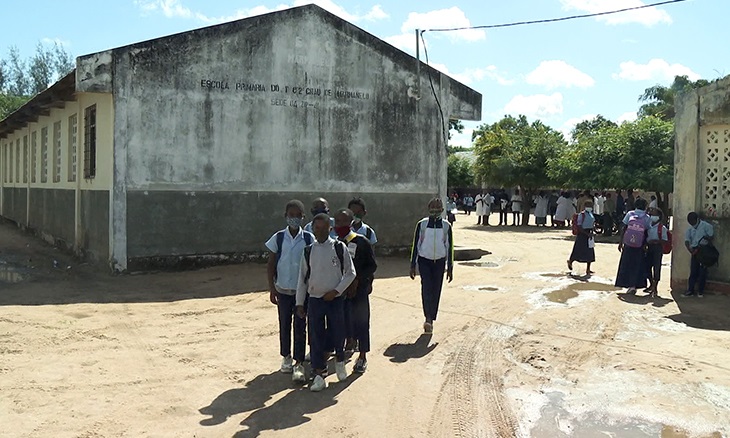AfricaPress-mozambique: The quality of education in Mozambique may have suffered irreversible damage as a result of Covid-19, according to an inquiry into the impact of the pandemic on urban families conducted by the National Institute of Statistics (INE) and the World Bank.
“In general terms”, the survey results “confirm the concern that the quality of education may have been greatly affected during the pandemic”, in the year 2020, “even for those who were able to participate in some learning activity”, the report of the Covid-19 Impact Survey on Urban Households in Mozambique reads.
“This lost learning may be difficult or even impossible to recover for some children after the pandemic or after the resumption of in-person classes for all classes,” it adds.
This situation is aggravated if one considers that students who were not in exam years “automatically moved on to the next classes”, despite having had practically no classes in 2020.
But, “with schools suffering from a high student-teacher ratio, especially in the first grades, the alternative of failing students can also result in even more crowded classes, thus posing a difficult dilemma” for the education system, the report notes.
Household responses show “significant regional disparities”.
In the first round of the survey, in June 2020, only 50% to 59% of households in the cities of Cabo Delgado and Nampula provinces (in the north of the country) declared that children and young people had engaged in distance learning activities.
In Inhambane, Maputo, Maputo City, Niassa, Tete, Sofala and Manica, this figure stood above 90%.
There was also “an obvious decrease” in participation in alternative learning activities as the months went by. It stood at over 80% in June but fell to just over 70% by the end of November.
“Most of the households declared that the quality of education during the pandemic was ‘poor’ or ‘very bad’, with enthusiasm for distance learning activities waning,” the document reads.
The survey was based on telephone interviews with representatives of 1,185 households (5,938 individuals) between June and November 2020, representative of urban areas in the 11 provinces of Mozambique.
The subsequent phases of data collection, which the INE has been conducting since April, expands the sample to include rural areas.
The report’s authors admit that the impact is “particularly severe in rural areas [which are] less connected” to the Internet, radio and television, “with fewer opportunities to adapt to the possibilities of distance learning”.
These are vulnerable and poor households where, even under normal circumstances, children routinely drop out of school after the fifth year.






